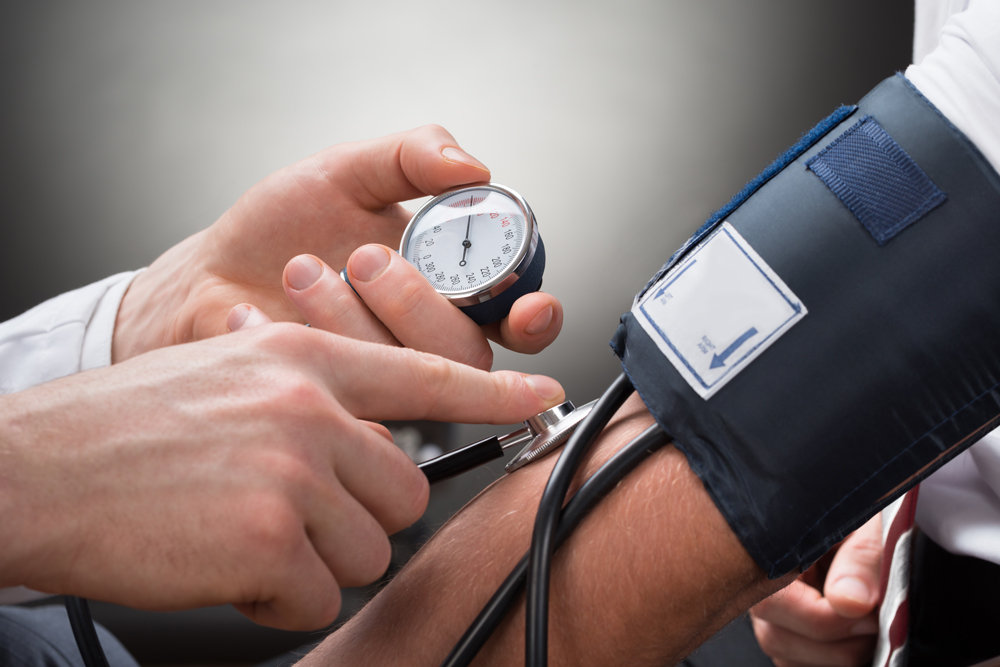Doctors test blood pressure to see if the blood flow around the circulatory system is normal, low, or high. Too low or high blood pressure can lead to significant health complications like stroke, cardiac arrest, kidney failure, or brain damage.

Millions of Americans are diagnosed with high blood pressure every year. High blood pressure is a serious health condition that is caused by a variety of factors.
If you have high blood pressure, it’s important to inform yourself of your condition in order to maintain a healthy lifestyle. This can be difficult if you’re just beginning to learn about how you can manage your health.
At South Texas Renal Care Group, our specialist doctors can help you with high-blood pressure treatment and management methods. The prime intent is to ensure your complete health and wellbeing.
Visit Our Clinics in South Texas Near You or Request for An Appointment For Professional Consultation.
This guide will provide extensive information surrounding frequently asked questions (FAQs) about high blood pressure.
It remains unclear what causes high blood pressure in most people. However, obesity, older age, poor diet, genetics, and inactivity all contribute to the development of hypertension.
Primarily, people that live inactive and otherwise unhealthy lifestyles are more likely to develop the disease. People that have a family history of hypertension also have increased odds of developing the disease if they live an unhealthy lifestyle.
High blood pressure is linked to other severe health issues. These issues include:
High blood pressure typically doesn’t have any symptoms in its first stages. For this reason, high blood pressure is generally diagnosed by a healthcare professional during a checkup.
If you have a relative diagnosed with hypertension, their blood pressure should be monitored closely. People with hypertension in their family history are more likely to develop the disease than others.
People unknowingly with high blood pressure may experience spikes in their blood pressure, which can result in chest pain, strong headaches, poor exercise tolerance, and difficulty breathing.
If you are experiencing any of these symptoms, contact your healthcare provider or blood pressure specialist for effective hypertension treatment and management for lasting results
High blood pressure treatments primarily include lifestyle changes. These lifestyle changes include:
Prescribed medications for high blood pressure include diuretics, alpha-blockers, calcium channel blockers, ACE inhibitors, beta-blockers, and angiotensin receptor blockers.
Your high blood pressure treatment depends on how well you routinely take your medications, exercise, and maintain a healthy diet.
As with any other medications, there are noticeable side effects of hypertension drugs. The most common side effects include:
People with high blood pressure should follow the Dietary Approaches to Stop Hypertension (DASH) diet. This diet is effective for hypertension management while helping you to properly cope with your condition.
In accordance with the DASH diet, you should follow these steps:
If you have been diagnosed with hypertension, visiting with your doctor on a regular basis is important. Your doctor will be able to answer all of your questions concerning your condition.
There are other times you may contact your doctor, which include:
Some medications you may be prescribed for other health conditions may increase your blood pressure. These drugs include, but are not limited to:
There are many over-the-counter medications that may increase your blood pressure, such as allergy medicine. Ask a specialist if the medicine you are currently taking will affect your blood pressure.
Your physician will not prescribe you anything that will conflict with your blood pressure medicine. Nonetheless, it is advised to ask.
Ask your doctor if taking any other medication will affect your blood pressure. This will help you avoid the various side effects and heightened blood pressure from other drugs.
Do not take any medication without consulting first with your doctor.
Are you currently dealing with high blood pressure and would like to speak to a specialist? If so, contact us at (210) 212-8622 to learn more.
Doctors test blood pressure to see if the blood flow around the circulatory system is normal, low, or high. Too low or high blood pressure can lead to significant health complications like stroke, cardiac arrest, kidney failure, or brain damage.
Doctors test blood pressure to see if the blood flow around the circulatory system is normal, low, or high. Too low or high blood pressure can lead to significant health complications like stroke, cardiac arrest, kidney failure, or brain damage.
2025 © SOUTH TEXAS RENAL CARE GROUP. ALL RIGHTS RESERVED